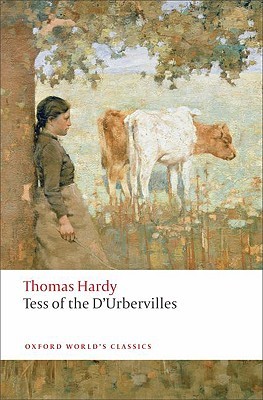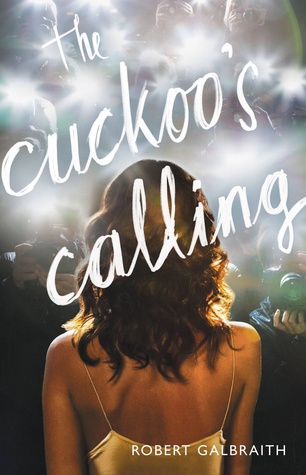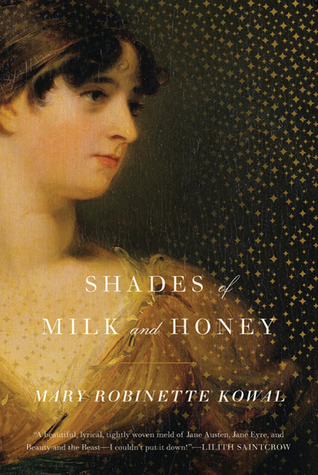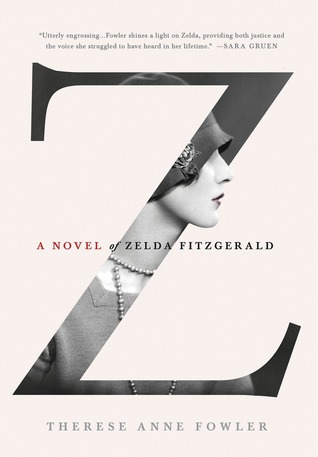 On an evening in the latter part of May a middle-aged man was walking homeward from Shaston to the village of Marlott, in the adjoining Vale of Blakemore or Blackmoor. The pair of legs that carried him were rickety, and there was a bias in his gait which inclined him somewhat to the left of a straight line.
On an evening in the latter part of May a middle-aged man was walking homeward from Shaston to the village of Marlott, in the adjoining Vale of Blakemore or Blackmoor. The pair of legs that carried him were rickety, and there was a bias in his gait which inclined him somewhat to the left of a straight line. "Young Tess Durbeyfield attempts to restore her family's fortunes by claiming their connection with the aristocratic d'Urbervilles. But Alec d'Urberville is a rich wastrel who seduces her and makes her life miserable. When Tess meets Angel Clare, she is offered true love and happiness, but her past catches up with her and she faces an agonizing moral choice."
I'm not quite sure what to think of this one. The writing was good, once I got into it, but Tess herself kind of annoyed me. The story was quite bleak, but it was a good one. The two main men in Tess's life (other than her father) are Alec D'Urberville and Angel Clare. I disliked both of them. Alec ruins her life, basically, but he's not entirely bad; just thoughtless and stupid. Angel and Tess love one another, and yet stupid, stupid Angel can't look past her past. It was frustrating, especially since Angel had just confessed doing the same thing to her right before. She's ready enough to forgive him, but he just can't do it. I've often noted the stupid Victorian double standard, and this novel is all about that. Angel can make big mistakes, and he'll be forgiven, but not Tess, because she's a woman. Still, the writing was pretty good.
I really loved the portrayal of the four milkmaids all in love with Angel Clare in the middle of the book; despite everything, Hardy seemed to know exactly how to write those scenes and describe how painful and pleasurable the sensation is at the same time.
I did like Angel Clare at first, but like every male in Victorian society he is blind and prejudiced. One of the main messages of Tess of the D'Urbervilles is, in fact, that men can be brutes. Just like in Corelli's Mandolin, the main male character is really likable; he just can't look past the fact that Tess is not a virgin, or in Corelli's case, that Pelagia might have been raped by a soldier. Clare was also kind of condescending to Tess, as if she couldn't possibly have had any experiences at all, when in fact she has (although much of her innocence is maintained).
The beginning of the book was a bit slow; it opens with the parson telling John Durbeyfield, Tess's father, that he is related to the now extinct noble family of the D'Urbervilles. If the parson hadn't made that disclosure, none of the rest of the story would have happened. So it was a good beginning, the action that started everything. I was just afraid that the whole book would be very overwritten. But it wasn't very, only slightly as one might expect.
The way Tess basically worshipped Clare also annoyed me. Marriage should be an equal partnership; of course, in Victorian times it was not seen that way. The problem, I think, with Jane Austen is that her novels don't show a clear picture of reality and social issues (that's not really what she's most interested in). In her stories, the heroine gets married and lives happily ever after. Tess of the D'Urbervilles was probably more true to life; it was a very grim story.
I was also annoyed with Tess; sometimes I wished she could be less weak and unknowing; of course, none of what happens at the beginning of the book is her fault, but later, she should have told Angel Clare to begin with, or not at all, rather than waiting so long.
I'm trying to think what the book reminded me of...There was something.
Anyway, I certainly didn't love Tess of the D'Urbervilles, but it had its points. I was really looking forward to it though, and it was something of a disappointment. I don't know if I'll be reading more of Thomas Hardy's work.
420 pages.
Rating: ***







